Search
Did you mean: Olympia?
Search Results

Definition
The Graces
The Graces (also Charites, sing. Charis) were goddesses from Greek mythology who personified charm, grace, and beauty. Hesiod describes three Graces, and this is their most common grouping in literature and art, but their number varies depending...
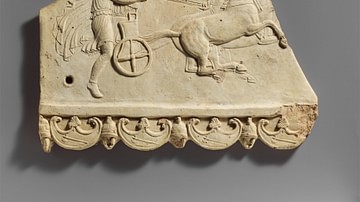
Definition
Pelops
Pelops was a Greek hero and king of Pisa in Greek mythology. As the son of Tantalus, he was a member of the cursed House of Atreus, and was cruelly sacrificed by his father in a twisted way to test the gods – an act that backfired and led...
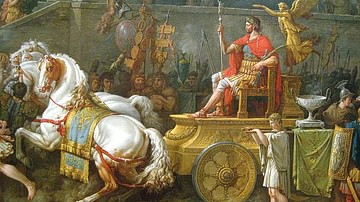
Definition
Battle of Pydna
The Battle of Pydna in June 168 BCE was a decisive Roman victory that ended the Third Macedonian War and established Rome as the dominant power in the Mediterranean. The Roman Republic was expanding, enlarging its sphere of influence along...
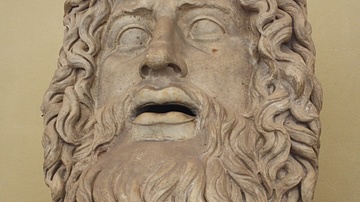
Definition
Titan - The Gods Defeated by the Greek Olympians
In Greek mythology the terrible and powerful Titans were those deities which preceded the Olympian gods. Never worshipped as the other gods, they nevertheless helped, through contrast, to clarify the position in the universe of the Olympian...
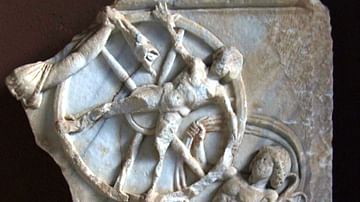
Definition
Ixion - The Man Who Was Tied to an Ever-Spinning Wheel
Ixion is the fiendishly wicked king of the Lapiths from Greek mythology. In an attempted seduction of Hera, he was tricked by Zeus into making love to a cloud instead, from which was born Centaurus, the founder of the race of centaurs. Ixion's...
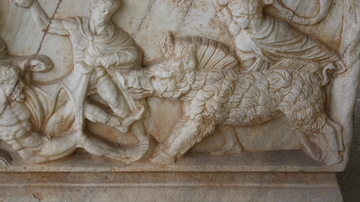
Definition
Meleager
Meleager (Greek: Meleagros) is a hero from Greek mythology who famously led an expedition to kill the Calydonian boar which was terrorizing the kingdom of Oeneus in Aetolia in central-western Greece. Appearing in Homer's Iliad and the later...
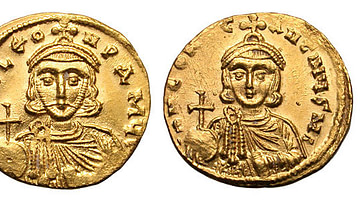
Definition
Constantine V
Constantine V, also known as Constantine the Dung-named by his enemies, was emperor of the Byzantine empire from 741 to 775 CE. He enjoyed military successes in the Middle East and Balkans but his reign is chiefly remembered for his systematic...
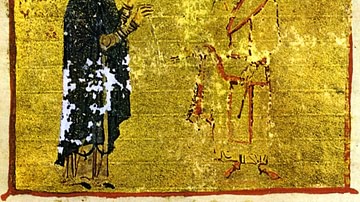
Definition
Michael Psellos
Michael Psellos (1018 - c. 1082 CE) was a Byzantine historian, writer, and intellectual. Michael acted as courtier and advisor to several Byzantine emperors, and he was the tutor of Michael VII. Writing between 1042 and 1078 CE, his texts...

Article
Athena Parthenos by Phidias
The magnificent temple on the Acropolis of Athens, known as the Parthenon, was built between 447 and 432 BCE in the Golden Age of Pericles, and it was dedicated to the city's patron deity Athena. The temple was constructed to house the new...
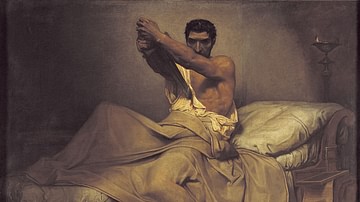
Article
The Ancient Concept of a Noble Death
The act of voluntary death was never condemned in antiquity. In fact, The English word "suicide" comes from the Latin for "self-slaying." The reason for a voluntary death had to be one that was honorable and necessary to remove any element...